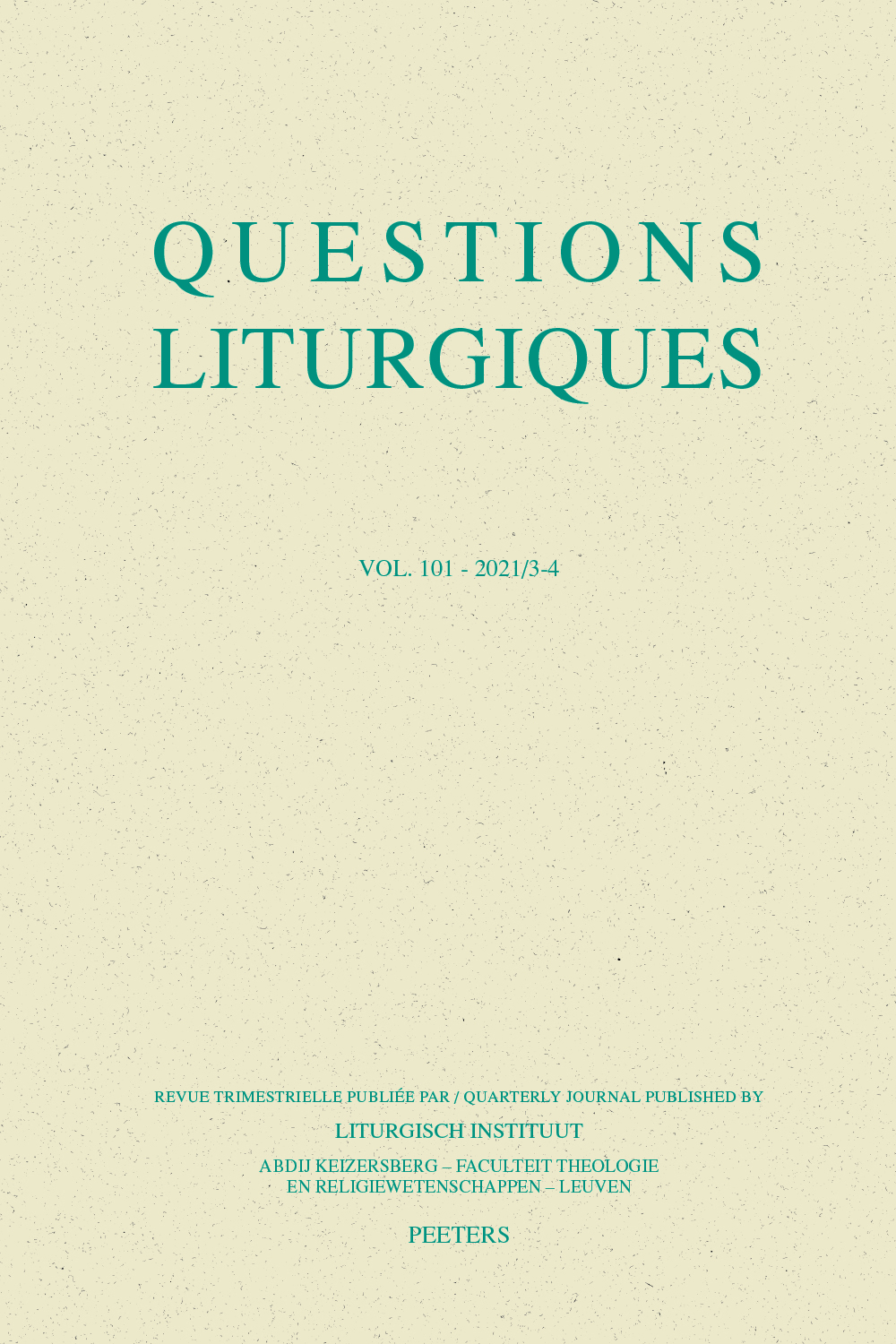 previous article in this issue previous article in this issue | next article in this issue  |

Preview first page |
Document Details : Title: Singing Together the Song of Diversity Subtitle: Liturgical and Ecclesiological Reform in Dutch Protestantism Author(s): VAN ANDEL, Nienke , KOFFEMAN, Leo J. Journal: Questions Liturgiques/Studies in Liturgy Volume: 93 Issue: 3-4 Date: 2012 Pages: 236-250 DOI: 10.2143/QL.93.3.2961375 Abstract : This article seeks to clarify the interrelationship of liturgical reform and ecclesiological reform within Dutch Protestantism. Its main assumption is that these two areas of reform have influenced each other mutually. The authors argue that the 1973 hymnal 'Liedboek voor de Kerken' can be considered as an actor contributing to one of the major reforms in current Dutch Protestantism: the unification of three churches into the Protestant Church in the Netherlands (2004). This interdenominational hymnal fostered cooperation between several denominations on a local level. Moreover, the hymnal’s underlying eschatological perspective – celebrating liturgy as joining the communion of the saints – anticipated tighter cooperation. The authors state that consensus is a key term in understanding both the design of the hymnal and the process that led to the unification of the churches. The article does not only look back; it also looks forward to the successor of the 1973 hymnal that will be published 2013. Again, the authors argue for an interrelationship between ecclesiological and liturgical developments, this time the key term being organic unity. Now that the churches have been united, they face the challenge to deal with internal plurality. The article ends by evaluating some consequences of (the editorial process leading to) the new Dutch hymnal, in terms of liturgy, church polity and ecumenism. Cet article s’efforce de clarifier les relations mutuelles entre la réforme liturgique et ecclésiologique à l’intérieur du protestantisme néerlandais. Leur principal effet est que ces deux foyers de réforme se sont influencés mutuellement. Les auteurs établissent que l’hymnaire 1973 «Liedboek voor de Kerken» peut être considéré comme un facteur qui a contribué à l’une des réformes majeures dans le protestantisme courant néerlandais: l’unification des trois Églises dans l’Église protestante des Pays-Bas (2004). Cet hymnaire interdenominational a contribué à la coopération entre de multiples dénominations sur le plan local. De plus, la perspective eschatologique que souligne ce hymnaire – célébrant la liturgie comme joignant la communion des saints – anticipe sur une coopération plus étroite. Les auteurs établissent que ce consensus est un terme clé dans la compréhension à la fois du dessein de l’hymnaire et du processus qui conduit à l’unification des Églises. Cet article ne fournit pas seulement un regard en arrière, il se porte également en avant vers le successeur de l’hymnaire de 1973 qui sera publié en 2013. À nouveau, les auteurs plaident pour une relation interne entre les développements ecclésiologique et liturgique, en ce temps le terme clé devenant unité organique. Maintenant que les églises ont été unies, elles doivent assumer une pluralité interne. L’article se termine sur une évaluation de certaines conséquences du processus éditorial conduisant au nouvel hymnaire néerlandais, en termes de liturgie, de gouvernement ecclésial et d’oecuménisme. |
|


